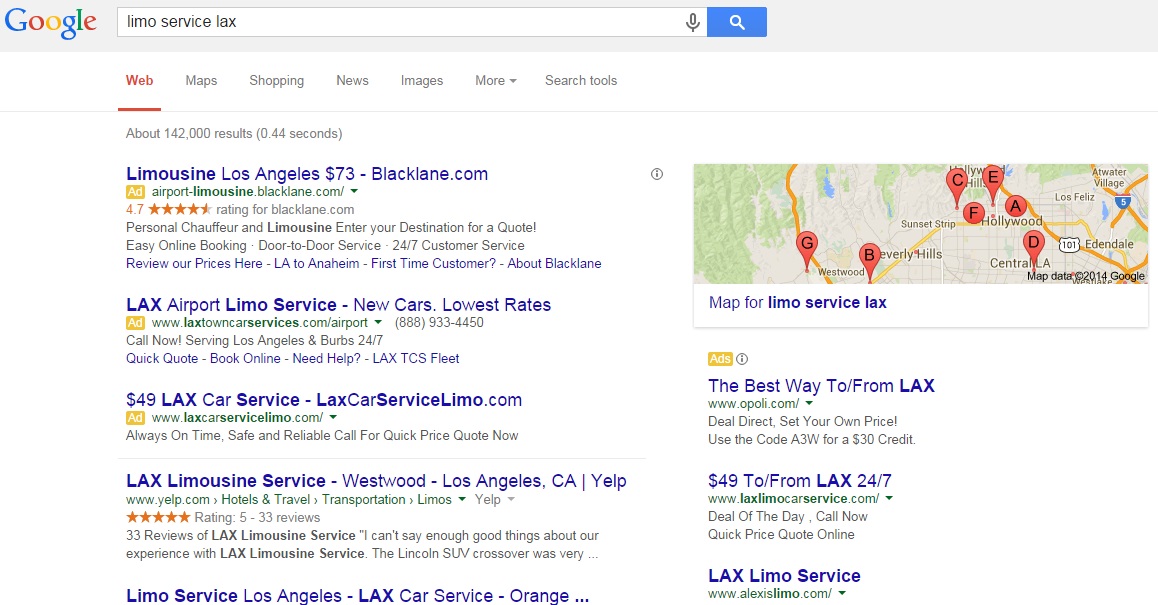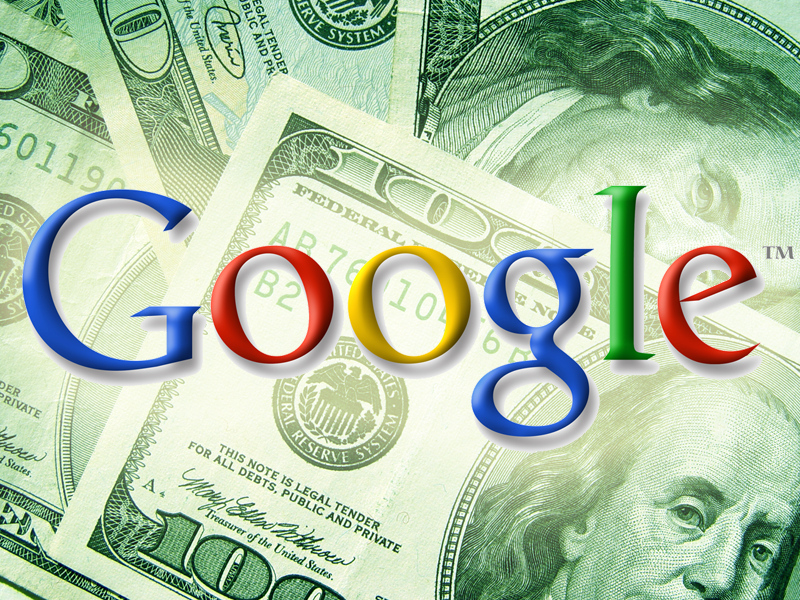Chicken or the egg: are 40% of top search results https (secured) because https helps seo rankings? or is 40% of top search results https because everybody in the industry is being told you need to be https for better results and more websites have then become https, with no direct seo benefit? internet marketing is very much so a copycat industry. id bet on more of the latter.
There’s a lot of people excited about RLSA (remarketing lists for search ads).
But unless you’re a bigger company with a big remarketing list already, it’s something that will take awhile before you can really take advantage of it.
For small business, remarketing works way better with banner ads than search ads.
Why? All the people that go on your website and then are tagged are way more likely to be going on various websites within Google’s display network, than your tagged people will be to go to Google and search for a keyword on your list.
That means way more inventory for remarketing with banner ads than search ads. Which means the cost and effectiveness are way better for banner ads.
In order for remarketing lists for search ads to be effective, you need to have lots and lots of people on your remarketing list. Like at least a couple thousand people.
Otherwise, you’ll get RLSA set up and be wondering why it’s not working.
Just wanted to pump the brakes for people reading up on it and thinking it’s going to work right away like some writers make it seem like.
Read MoreYeah. I think we’re near the end of link building as a means to SEO. I think it’s going obsolete.
Why? Because of the rise of mobile.
Close to 60% of all people access the internet from a mobile device, while close to 40% access it from a desktop computer. I predict in the next few years, we could get to mobile 70%-75% and desktop 25%-20%.
Now what’s hard to do on mobile? Linking to a website to share content. Linking on mobile can be done but it’s difficult and I’d imagine most consumers don’t do it.
What we could have in the next few years instead of link building is “share building”. In other words, try to get people to “share” websites. Probably, mostly through social media.
The whole reason why Google rates links so highly in determining SEO rankings is because a link represents the user is vouching for the content. A share does the same thing.
My prediction on how to position yourself best for our mobile future is to write great, unique content and get it to go as viral and shared as possible.
Read MoreI haven’t written anything in awhile. 2nd kid being born in March. Moved my family from California to northern Virginia. But I’m back!
Wanted to opine on an article by Larry Kim. The premise of what he wrote is that it’s all about collecting cookies.
For those not familiar with cookies or remarketing: person goes to a website. The website can then drop a piece of code, known as a cookie, in the device of the user, so that whoever operates the website can stay in touch with user through serving banner ads. In other words, if you’ve ever been on Amazon, looking for a product. And then you leave. And then you start seeing banner ads pop up all over the internet for what you were just looking for, that technique is called remarketing.
Couple things I’d point out about what Larry wrote.
He makes it seem like everybody can do RLSA (remarketing lists for search ads). But you need a really big remarketing list to do it. Like at least a couple thousand cookies.
Why? Because the people on your remarketing list aren’t going to do searches all the time for what your business does.
But it’s easy and common to serve banner ads to people when they’re on various websites.
I’d also point out the idea of getting cookies with social ads is only for businesses in high CPC industries like legal, financial, insurance, etc.
So what’s the most low cost way to acquire cookies?
In my experience, it’s probably banner ads through Google’s display network, paying by CPM (cost per 1,000 views).
Let’s say a banner ad click costs $2. I’ve found that with all the impressions I get for $2, it’s almost always 2 clicks or more. Thus for my $2: CPM > CPC
But there’s another HUGE reason why we do banner ads with CPM and not CPC.
About 60% of internet users are mobile, 40% desktop computer. And there are big problems that remain unsolved for mobile banner ads. Fat fingers (aka when the buttons on the website are too small). And ad publishers that deliberately try to get accidental clicks (trying to collect those Google Adsense checks).
This means a whole bunch of wasted money.
But when you pay by CPM, it’s not a probem cause you’re paying by the view and not the click. So the accidental clicks don’t matter. Only thing that matters is getting those 1,000 views.
And if the banner ad can be a little creative with an offer like: “Book 5 trips and get a ride to LAX Airport for free”, you could get even more clicks for the same CPM price.
On a side note, I’ve found that 10% off and stuff like that isn’t as effective because it’s not tangible and a lot of people are skeptical of the deal cause they think the business will just jack up the regular price.
Another side note, despite the privacy concerns consumers are having over being “tracked”, I think remarketing will survive. When a lot of people hear the word “tracked”, they picture being spied on. When in actuality remarketing is just giving advertisers the ability to serve custom advertisements. Which surveys have shown people prefer custom advertisements tailored to what they like versus generic ads.
In summary, remarketing is a must. And it’s probably the future of internet marketing.
Not sure? Imagine getting your remarketing list up to 1,000 people. Or 10,000 people. Or even 100,000 people. Been on your website before. They had/have an interest in what you do. And they know you because they see your ads all over the internet. And they might think your company is a big deal because you advertise seemingly on every website!
Thus the future of internet marketing might not be so much as, “Hey, let’s get as many calls as we can out of these $5 search engine clicks.”
It might be more like, “Hey, let’s squeeze as many calls as we can out of the 7,560 people we’re serving banner ads to from our remarketing list.”
Read MoreWell, not entirely, but just about.
The stats are unanimous across the industry that in this current moment as you read this blog, there are more people accessing the internet with their cell phones than regular, desktop computers.
Over the next couple years, we could be at a place where 70%-75% of all internet traffic is mobile.
And if you haven’t noticed, Google has rolled out a big change to which websites they rank on their first page.
And if your website isn’t mobile, or at least mobile-friendly, it’s rankings will soon sink further and further with each month that passes by.
I can’t emphasize this enough. How your website shows up on the cell phone is way more important now than how your website shows up on the computer.
Google is now focusing on this and you should too.
Read MoreTake note. For those business owners out there that think that there’s only 10 main keywords to target, your paradigm is about to change.
According to research done by KO Marketing, at least 50% of all searches done on Google, Yahoo, and Bing are 4 words or more.
Meaning that 50% of searches are not just “auto repair” or “flooring”. They’re 50% as likely to be “who does nissan brake repair ashburn virginia” or “average price of walnut wood flooring dallas tx”.
The search engines consider each combination of words to be known as a “keyword”. And if you change just one letter in the combination, they consider it a different “keyword” which is going to produce a different list of businesses that pop up on the first page.
The lesson here is that there are litterally an infinite amount of different keyword combinations potential customers could search for.
Each keyword is like a billboard and the more billboards you’re marketed on, the better. The goal is to pop up on the 1st page of a search engine for as many keyword combinations as possible.
Read MoreYears ago, Google used to have 82% market share, according to ComScore.
Meaning that 82% of all searches to a search engine went to Google.
Now the latest ComScore report has Google at 65% while Bing/Yahoo is at 33% (Bing aka Microsoft runs Yahoo’s search engine for them).
Most people aren’t stupid. They see that Google is becoming more and more like a classified section in a newspaper. It’s becoming nothing but ads.
My prediction is that because of constant shenanigans, that Bing and Yahoo will become more popular and more widely used.
The reason why Google triumphed over all the other search engines like Hot-Bot, Alta Vista, Ask Jeeves, etc is because their brand became, “we have the best organic results and best content”.
I think Google is being too short-sighted. probably under pressure from stockholders to grow profits right now.
But they’re losing their brand.
Google was once beloved in the webmaster, seo communities. Now they’re becoming despised.
I really think more and more people will start to see what Google is. A website with advertisements. That’s what Google is turning in to.
And i think more people will turn to Bing and Yahoo as viable alternatives.
Read MoreMake no mistake about it. Google is in the business of making money.
There have been 2 developments lately that show they’re getting more aggressive to do that.
For years and years, Google would display 7 businesses on it’s front page when someone was looking for local services or products.
But now, Google has shrunk the real estate from 7 businesses to 3. They’ve done this for all local searches.
Also, I’ve been noticing more and more national directories popping up in the regular organic section instead of local small businesses.
For instance, if I do a search for “wedding limousine service sherman oaks”, the following is what I get
-3 businesses from Google maps
-Yelp listing
-Yelp listing
-limos.com (big national limousine directory)
-limos.com
-weddingwire.com (big national wedding directory)
-local business
-local business
-local business
-local business
Why is Google doing this? It’s really simple. Google doesn’t want local small businesses to get their phone calls and sales leads for free. Google wants small businesses to pay for advertising.
I predict that Google will continue to be more and more purposeful about decreasing real estate and making it more difficult to rank organically through search engine optimization.
Read More*This is only, currently for people accessing the internet with cell phones and other mobile devices.
Google is now testing putting a “slow to load” icon next to websites that will be slow to load on cell phones.
Obviously this would be bad for companies with slow websites, but you should be redesigning your websites so they’re responsive or mobile friendly anyway.
Over half of all people now access the internet from mobile devices. So really, it should be a no-brainer to make sure you have some sort of mobile website.
But now, if you don’t conform, Google is going to punish you for it.
Read MoreWhat is a “custom audience”? It’s advertising to people who are already familiar to you.
In other words, a custom audience is made up of a list of email addresses, or phone numbers, or physical addresses, etc.
Facebook first tested a custom audience product back in 2013. Recently, it’s been opened to the general public.
The way the Facebook custom audience advertising works is you give Facebook a list of your contacts, and then instead of advertising banner ads to random people on Facebook, your banner ads will instead be advertised only to people on your contact list.
Currently Google and Bing are experimenting on a similar product where your search engine ad is only seen by people on your contact list.
So obviously a lot of people in the marketing industry are excited by this.
It’s no secret that one of the reasons email marketing can be the most effective marketing technique in 2015 is because advertising is always more effective when your audience knows who you are.
For those thinking that you don’t want to stalk your customers by doing email marketing with them, advertising to them on Google, Facebook and everywhere, there’s a way to tone down the stalking ; )
With almost every custom audience product, there is something called a “cap frequency” that limits how many times a day each person sees your ad. So you can limit each place you advertise to people only seeing your ad once a day to blend in with the other ads.
Collecting and organizing customers contact info has never been more important!
Read More







